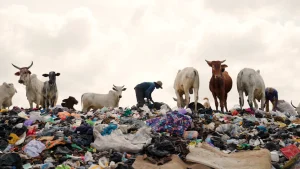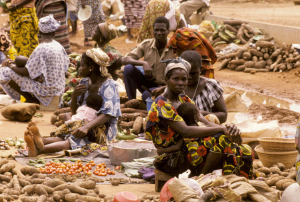
Author: Abubakar Yusuf Ado | aya1900184.pha@buk.edu.ng
Antonio Conte once said that, “to use the verb ‘to win’ is more simple than winning because to win you have to build something important, be solid … Then you’re ready to win. Otherwise you have to hope.” (Andrews, 2022).
The World Cup began in 1930. Since then, all the winners have either been European or South American, which tells us that it is not only Africans that are underperforming at the World Cup (Aluko, 2020). Although, African countries have great football teams. Some of the best players who shine nowadays in the world come from Africa. Nevertheless, several factors have contributed toward African teams’ failure to win a World Cup. This essay seeks to explore some of the factors which cause African teams’ poor performance at the World Cup.
In the 1970s, Brazilian Pele predicted that an African nation would win a World Cup before the year 2000 (Dove, 2022). Unfortunately, his prediction didn’t happen. Also, many football lovers anticipated the same. With the exception of the Atlas Lions, no African team has ever made it to the semi-finals since the inception of the World Cup (Farhat, 2022).The Atlas Lions’ (Morocco’s) performance in the 2022 World Cup is an eye-opener that one day an African country could be a world champion. Most African teams were knocked out at the quarter-finals, but the Atlas Lions went far and qualified for the semi-final after beating Portugal. That has earned them recognition to be ranked as the 11th best team in the world by FIFA (FIFA, 2023).
Obviously, poor financing and mismanagement have sabotaged the success of African teams at the World Cup. Unsurprisingly, a continent that is internationally known as the epicenter of poverty, may experience money issues. On a regular basis, African teams engage in disputes between the football associations, coaches, and players over salaries and bonuses’ payment before or sometimes during the tournaments, including the World Cup. For instance, Cameroon players refused to fly to Brazil for the 2014 World Cup until their bonuses were paid. Not surprisingly, they were eliminated at the group stage. The solution to this is that players’ salaries and bonuses should be paid on time. In addition, a coercive action should be taken against any form of mismanagement of funds.
Without a doubt, maladministration is the biggest problem of African teams. The people running most of the African football associations are corrupt and clueless. Most of them knew nothing about football, they were there because of personal interests. Their scandals range from meddling with team selections to the tampering of funds meant for the upkeep of players. The rap sheet of the African football administrators is endless. It is always about politics not football. In contrast, more ex-internationals should be hired to dislodge politicians in running African football. In this regard, veteran players should be given a chance to contribute meaningfully in African football administration.
Playing matches with a lesser confidence leads to losses. A good example is Ghana’s 2010 World Cup campaign, they were about to make history and become the first African team to advance to the semi-finals, but were beaten by Uruguay on penalty shootouts. Another example was the game between Nigeria and Argentina at the 2018 World Cup in Russia. That was a general lack of confidence in serious moments of World Cup games. The Super Eagles were tied at a 1-1 with less than 10 minutes to play, a result that would have made them qualified for the Round of 16 and eliminated Argentina. However, the expression of nervousness shown by the players and the coach made them concede a goal at the last minute, which gave the Argentines an edge to progress. Having confidence is a stepping stone to success.
Many African teams were beaten at the World Cup because of lack of structure. The best teams in the world plan ahead. They use academies to build a team of the best players in their respective countries, something that Africans have failed to implement so far. Africa has talents likewise Europe and South America. The Ivory Coast’s famous golden era could compete with the very best teams in the world, but a lack of a proper football structure to sustain their prime cost them today. A good structure and plan for the future make a difference.
Africa has been producing the best players for decades to grace the beautiful game, but it has been different when it comes to the continent’s coaches (Howorth, 2022). In Africa, football associations have resorted to foreign-based coaches instead of home-based coaches. Honestly, the local coaches have the desire to win, but they lack ambition. They express love and patriotism for their countries, unlike foreign-based coaches who are after fantastic contracts. Home-based coaches do have issues with some players, many African players have a track record of indiscipline, especially when a locally based coach is leading the team of many foreign-based players. Most of the time, the coaches find it hard to contain and control the enormous egos of these players, leaving the coaches in a bad spot and hurting the team spirit in the camp. Hence the over-dependence on the so-called professional players, ignoring other viable options in the process should be cut off.
In conclusion, for African teams to win a World Cup, the African governments and the stakeholders must work together to address those factors which contribute heavily to their poor performance at the World Cup and other tournaments. Also, partnership with some football international bodies on how to build better academies could help as well.



